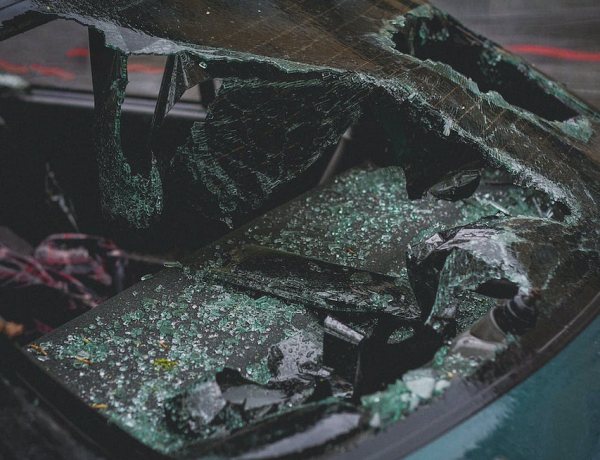Car Accident Claims
Today we’d like to discuss the role of police reports in car accident claims. Bakersfield in California is renowned for its agricultural prominence and thriving oil industry, as well as its industrious residents and the cultural richness of its diverse community. As such, this city in Kern County epitomizes the spirit of resilience and camaraderie. From the bustling cityscape to the serene expanses of its rural outskirts, Bakersfield offers a tapestry of experiences that reflect its unique identity. However, amid the daily rhythms of life, the issue of car accidents casts a dark shadow over the community’s well-being. Being involved in one also comes with a volley of complexities, particularly involving filing claims for compensation.
In the realm of car accident claims, police reports hold sway in establishing accountability and liability. These reports offer a clear narrative of the event from an objective standpoint, aiding insurance companies, legal experts, and those directly involved in navigating the aftermath. Are you someone who is wondering about the role of police reports when you’re injured in a car accident? This article will delve into how police reports impact car accident claims and why they are pivotal for achieving a just resolution.
Unbiased Record Keeping: The Influence of Impartial Observers
A key aspect that police reports bring to car accident claims is record keeping. When an officer reaches the scene, their primary duty is to evaluate and document the specifics surrounding the collision. This encompasses gathering details from witnesses, noting any physical evidence, such as tire marks or debris, and creating diagrams or sketches to accurately depict the scene.
The presence of a police officer lends credibility to these facts as they serve as observers without any stake in any party involved. This helps eliminate biases or inaccuracies that could stem from testimonies alone. Insurance firms and legal practitioners heavily depend on these observations provided by law enforcement entities to ascertain fault with precision. Determining responsibility in a car accident is crucial for processing insurance claims. Insurance companies rely on the examination of police reports to determine fault based on documented evidence from the accident scene.
Establishing Liability: Determining Fault Through Police Reports
Police reports contain accounts of events leading up to and following the collision, including factors like weather conditions, traffic violations, statements from drivers involved, witness testimonies, and any citations given. By reviewing the information provided in a well-prepared police report, insurance adjusters can accurately establish liability for an accident. This analysis serves as a basis for negotiating settlements or preparing for legal actions. To combat false claims in car accidents, it is important to verify facts and insurance coverage. Police reports are instrumental in investigating cases by offering information provided by law enforcement professionals.
Protecting Against Fraudulent Claims: Verifying Facts and Insurance Coverage
These reports typically include details such as driver’s license numbers, vehicle identification numbers (VIN), insurance policy details, and any citations issued at the scene. By comparing this information with official documents, fraud investigation teams in insurance companies can validate the truthfulness of claims and detect any inconsistencies that might indicate fraudulent behavior.
Simplifying the Process of Filing Insurance Claims: Minimizing Disputes and Delays
The procedures for filing insurance claims can already be complex and time-consuming. When there’s conflicting information or disagreement regarding the circumstances surrounding a car accident, resolving issues becomes even more challenging. Police reports play a role in expediting conflict resolution between parties with differing accounts by offering an overview of what occurred during the accident. This aids both insurance adjusters and legal experts in evaluating each party’s case. With this perspective, resolving disputes becomes faster, paving the way for fair settlements and reducing unnecessary delays. Moreover, having a police report also helps prevent misunderstandings stemming from miscommunication among various parties. It’s evident that clear documentation contributes to smoother insurance claim processes for everyone involved.
Supporting Accident Investigations and Reconstructions Through Evidence
In addition to witness statements and physical evidence, police reports are materials that support accident investigations and reconstructions. When looking into the details of a car crash, insurance adjusters and legal experts might require information to grasp the sequence of events. Reports from law enforcement typically contain details about road conditions, vehicle positions, time of day, lighting situations, and any contributing factors like alcohol or drug involvement. This additional information offers a clear view of how the accident transpired and aids in reconstructing the incident for further analysis. By incorporating police reports into their inquiries, professionals can gain an understanding of what led to the accident, enhancing their ability to present arguments during claim discussions or legal proceedings.
In Summary
Police reports are crucial in ensuring fair resolutions for car accident claims. They offer documentation through witness testimonies, assist in determining responsibility by assessing factual evidence at the scene, safeguard against fraudulent claims with verification processes, and streamline insurance claim procedures by minimizing disputes and delays. Recognizing the impact that police reports have on car accident claims is essential for all parties involved – whether as drivers, witnesses, or insurance specialists. By understanding the value of these reports and utilizing them effectively, individuals can navigate the claims process confidently and secure compensation for any losses suffered.
Read more law articles at ClichéMag.com
Images provided by Deposit Photos, BingAI, Adobe Stock, Unsplash, Pexels, Pixabay & Creative Commons





